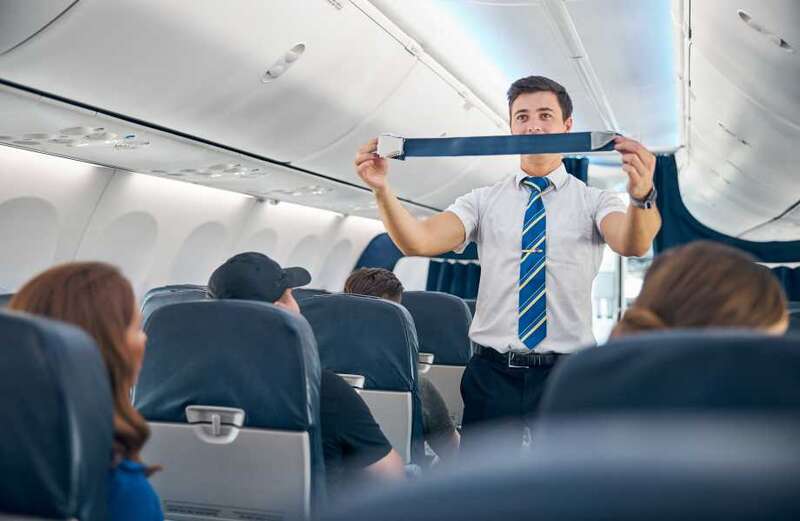PASSENGERS expect a lot from their flight attendants and we expect very little in return.
Yet there's one very simple thing that we really would like to see people on our planes doing much more than they are - and it could be the difference between life and death.

In this week's blog for Sun Online Travel, I'm going to explain how taking just five minutes at the start of your flight can really help you live, should there be an emergency.
Firstly, when I say it's something you can do, you don't even really have to "do" anything. You just have to sit there, as you would be anyway and we'll do the rest.
At the start of every single flight we run through the safety features of the plane, including pointing out your emergency exits and showing you exactly what you need to do in case there's a problem.
 I'm a pilot- here's why you feel knackered after even short flights & how not to
I'm a pilot- here's why you feel knackered after even short flights & how not to
The safety demonstration is both intensive and methodical and it literally tells you everything you need to know.
The problem is that no one watches it - and it annoys us all so much.
Firstly, we feel stupid doing our little performances for you in the aisles while no one is looking, but more importantly, if something does go wrong, we know we're going to be fighting a losing battle.
There's hundreds of people on the plane sometimes and if only a handful of them have watched the safety demonstration, that means there's a load more who won't know what to do.
Those people are going to be relying on us for guidance and we logistically cannot help everyone individually in an emergency.
We need you to show initiative and be able to help yourselves - that's the point of the demonstration, so you all know what you're doing in the rare case that something goes wrong.
But you can guarantee those people whose eyes were closed, or who had their headphones on while we were providing those exact instructions will be the first to ask for help.
If it were up to me, headphones would be banned until the seatbelt sign was turned off. That's the most dangerous part of the flight and it would really help if everyone was more alert at that moment.
I know some other cabin crew members feel the same about that, but it's not a popular opinion among passengers.
I'm not complaining about having to help people - I'm more than happy to do that if there's an emergency, it's my job.
 I'm a flight attendant who only carries hand luggage on holiday - here's how
I'm a flight attendant who only carries hand luggage on holiday - here's how
What I'm saying is, I won't be physically able to help everyone, neither will my colleagues, so some of you could easily end up struggling.
I don't understand why people would take their chances either, even frequent flyers.
They're just people who regularly don't pay attention to the safety announcement, not people who know it off by heart.
Also, not all flights and planes are the same, so it's worth watching even if you are familiar with all the different aircraft.
I perform the announcements, but I still watch them every time I fly, just in case that airline has a slightly different way of doing things to what I'm used to.
There's more than one way to skin a cat and if I think I know better by doing things in a different way to them, it could cause problems and create a hold up.
So please, just pay attention for the few moments that they're performing the demonstration and follow the instructions if you need to, it's really not hard but it could save your life and other people's.
We saw recently with the plane that caught fire in Tokyo how effective it is for people to leave their luggage behind in an emergency, which really helps people get off the aircraft faster.
Luckily, everyone survived that incident because the people on it were incredibly well organised.
Had they not been, some people might not have been so lucky.
Meanwhile, all passengers should know this five second safety tip when boarding their flights.
And this is why counting the seats when you get on board could also save your life.



































